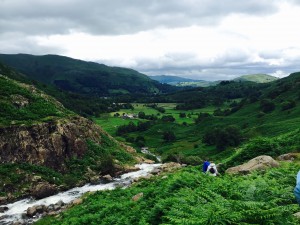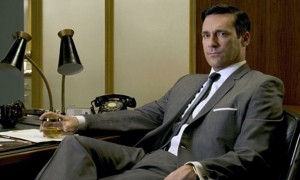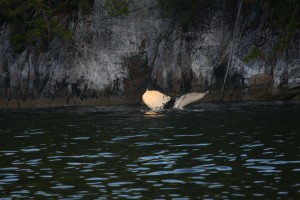Article by Chelsea Teague, current BIC student
The surface area of the world is 196.9 million square miles. Circumference: 24,902 miles. Population: 7.125 billion souls.
But I grew up in DeRidder, Louisiana—population all of 10,793—and the world doesn’t seem so big when the most happening place you can go on a Friday night is the local Wal-Mart. I didn’t think much of what the world had to offer beyond the confines of North America except that there were other places to live and that people lived there. I could point to France on a map, but it wasn’t France—just that squarish part of Europe where they sometimes ate snails. With this understanding of the world, I aced geography, but I didn’t really grasp the scope of the planet.
Moving to Waco did a little bit to open me up to the rest of the wide, wide world, but even its respectable population of 129,030 couldn’t compete with the monstrous size of Everything Else that I had never really reflected upon. I made a bunch of new friends during my first year at college. I met more people in my first week than I had met in the last six months, but I didn’t wonder for a minute that there could be anything more than my Baylor bubble. Could there be anything more, with a Chick-Fil-A two seconds away from my dorm? It was difficult to think so.
And then it happened, at the beginning of my second semester. I was surfing the Internet, procrastinating on my latest assignment, when I came across something called “study abroad.”
What? Abroad? Like, Oklahoma?
No! the website told me. Like Oxford, England!
I was immediately interested. It was a summer study program affiliated with Oxford University in the UK. I would go with three Baylor professors and twenty other Baylor students and travel and learn and eat and sleep and actually live in Oxford for all of five weeks. For a Tolkien/Lewis/Rowling/etc. nerd like me, it was a dream come true. Should I do it? Could I?
A quick phone call to my parents confirmed that yes, yes I could! I signed up immediately, submitting my application with dizzying speed, so quickly that I missed a typo, and that was that. It was almost too easy. The rest semester flew by in a whirl of homework and final exams, and then before I knew it, I was leaving my comfortable, 129,030 person home and boarding a plane to the UK.
That summer was one of the most incredible times of my life.
We touched down at Heathrow, and I was immediately overwhelmed by how multi-cultural everything was. In the space of five minutes, I had bumped into people from Italy, Spain, France, Germany, and all over the United Kingdom and had heard what seemed like every language known to man all at once. Things were much the same in Oxford, and tour groups of every nationality clogged the streets, turning the relatively small town into a hopping city center. Culture and history were everywhere, and I could hardly step into a building without reading a plaque about how old it was and how it had been the secret hideaway of such-and-such a person in the war of such-and-such a year.
The people I traveled with were some of the best I had ever met in my life, without exaggeration, and together we adventured in London, Edinburgh, Cardiff, Swansea, Stratford, Grasmere, and even Paris. I ate every weird food I had ever heard of (escargot and haggis were at the top of my list), explored the palace of Versailles, hiked in the mountains of Scotland, visited Shakespeare’s grave, and saw what seemed like every musical playing in London’s West End. We slept in Christ Church, founded by King Henry VIII some eight hundred years ago, and ate dinner in the Great Hall, the inspiration for the same place in the Harry Potter films. Everything was wonderful, and nothing lacked anything.
The world was suddenly so big. The whole of Europe was just a train ride away. The history and the places that I had spent all of high school learning about were right there at my fingertips, and all I had to do was go out and look at them. I was overwhelmed with the hugeness of everything. I tried to journal it all, but I wrote and wrote until my fingers were numb, and I still hadn’t captured everything that I’d seen and done.
All of a sudden, I felt so small. There were 7.125 billion people out there just like me, and I was in the middle of them all, and I was really, really small. There was so much to experience—how could I ever do it all in just over a month? There was just no way.
Texas felt different when I came back. It hadn’t changed, but it felt different—smaller, but in a good way, like how a small house is cozy. Homey. Now I can look at a map and find France and think about all the places that I’ve been and the things that I did, and think about all of the things that I haven’t seen yet. My study abroad trip forced me to live in a world that is bigger than the one I was born into. I’m going to see all of it eventually, even if it takes me the rest of my life. It probably will. The world is a big place, after all, and I’m pretty small.
Chelsea Teague is a sophomore BIC student majoring in professional writing.


